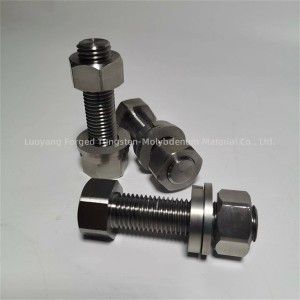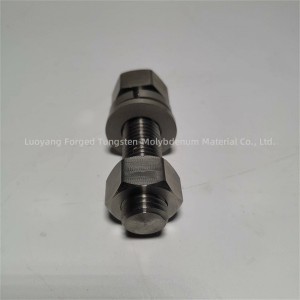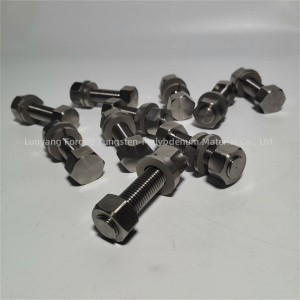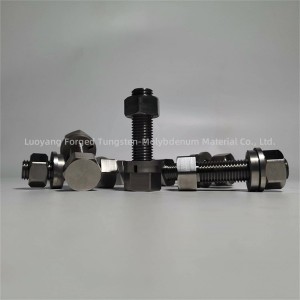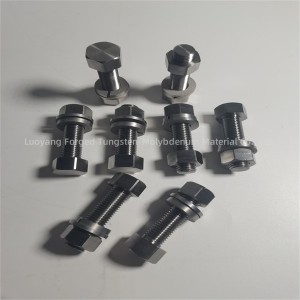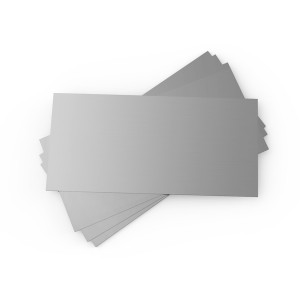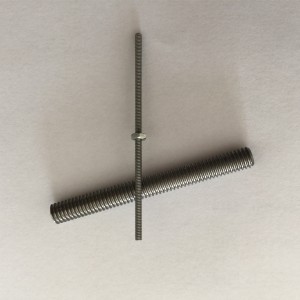High temperature resistance tantalum bolts screws
Tantalum is known for its excellent corrosion resistance, but some conditions and substances may corrode tantalum. Some factors that can cause tantalum corrosion include:
1. Strong alkali: Tantalum is susceptible to corrosion in highly alkaline environments, especially at high temperatures.
2. Hydrofluoric acid: Tantalum is attacked by hydrofluoric acid, especially at high concentrations and temperatures.
3. Certain Halogens: Tantalum can react with certain halogens (such as fluorine and chlorine) at high temperatures, causing potential corrosion.
4. Molten salts: Tantalum is susceptible to attack by certain molten salts, especially at high temperatures.
It is worth noting that in most cases, tantalum exhibits excellent corrosion resistance, making it suitable for use in highly corrosive environments. However, under certain extreme conditions involving the above substances, precautions and considerations may need to be taken to ensure continued corrosion resistance of tantalum components.

The best anti-corrosion treatment for bolts depends on the specific application and the environmental conditions to which the bolts will be exposed. The following are some common bolt anti-corrosion treatments:
1. Stainless steel: Stainless steel bolts, especially those with high chromium and nickel content, have excellent corrosion resistance. Stainless steel bolts are suitable for many applications, especially in environments exposed to moisture and certain chemicals.
2. Coating: Various coatings can be applied to bolts to enhance their corrosion resistance. These include galvanizing, galvanizing and epoxy coatings. Each type of coating provides a different degree of corrosion protection and can be selected based on specific environmental conditions.
3. Corrosion-resistant alloys: Bolts made from corrosion-resistant alloys such as titanium, nickel alloys, or specialty alloys such as Inconel or Monel are suitable for applications that require a high level of corrosion resistance.
4. Polymer coating: Bolts can be coated with polymer materials such as PTFE (Teflon) to provide a protective barrier against corrosion. These coatings are particularly useful in applications requiring chemical resistance and non-stick properties.
5. Cathodic Protection: In some cases, bolts can be protected from corrosion through cathodic protection methods, such as the use of sacrificial anodes or impressed current systems.
When selecting the best bolt anti-corrosion treatment method, it is important to consider the specific environmental conditions, the material of the bolt, and the performance requirements of the application. Consulting with a corrosion expert or materials engineer can help determine the most appropriate anti-corrosion solution for a specific application.

Wechat:15138768150
WhatsApp: +86 15838517324
E-mail : jiajia@forgedmoly.com


